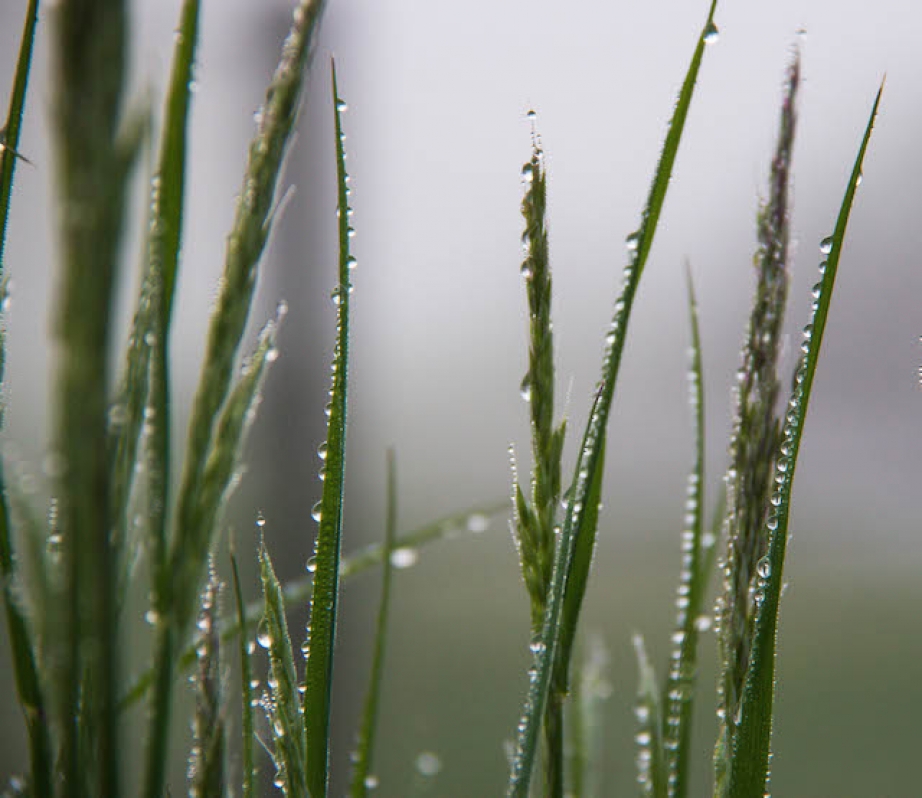- Dew forms when moisture from warm air condenses on a surface that has cooled after the sun has set.
- Dew forms more heavily on vegeta- tion because plants cool quickly due to their large surface area. The same goes for your tent.
- The Grateful Dead’s 17-minute version of “Morning Dew” from May 22, 1977, is generally considered to be their best ever.
- Dew is slower to form on rocks because they retain the sun’s heat longer.
- You could fill a one-litre bottle with the moisture accumulated on 1,450 maple leaves after a heavy night’s dew.
- A dew rag is a coloured bandana that identifies which ‘hood you represent in the city or which camp you attend in Temagami.
- As the saying, “When the dew is on the grass, rain will never come to pass,” suggests, heavy dews are an indication of warm and clear weather.
- Dew doesn’t occur in overcast con- ditions because cloud cover keeps the day’s warmth from escaping into the atmosphere.
- In a good year, Canada exports more than 350 million dew worms to the United States, enough to fill 29 million Styrofoam containers.
- In a bad year, Canoeroots editors find an average of 19 discarded dew worm containers on the shores of eastern Canadian waterways.
- Mountain dew is Tennessee slang for bootlegged whiskey.
- Frost is dew that forms when surface temperatures are below freezing.
- Mountain Dew bottles of the 1960s displayed a gun-toting hillbilly taking aim at a government man.
